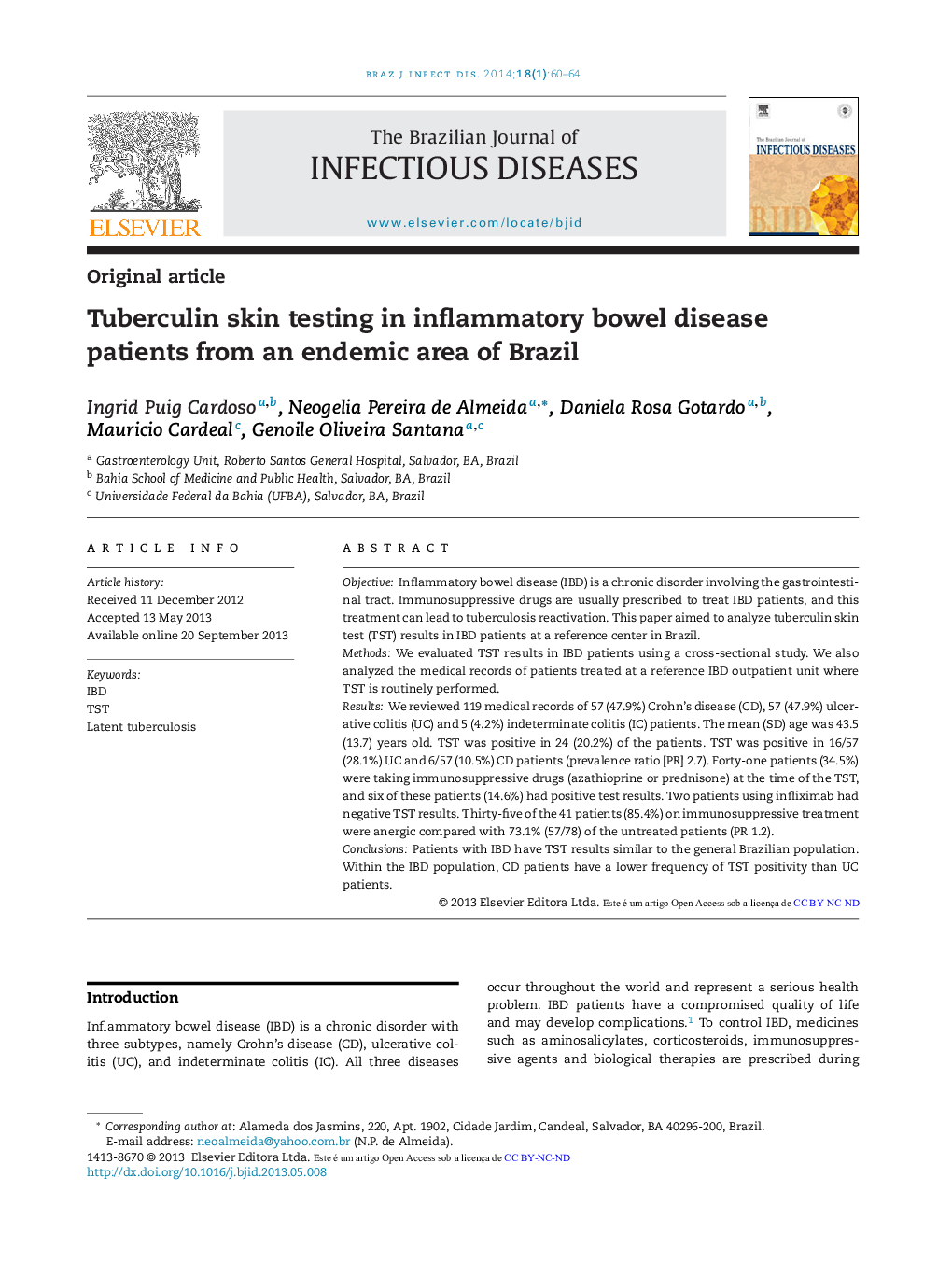| Article ID | Journal | Published Year | Pages | File Type |
|---|---|---|---|---|
| 3343981 | The Brazilian Journal of Infectious Diseases | 2014 | 5 Pages |
ObjectiveInflammatory bowel disease (IBD) is a chronic disorder involving the gastrointestinal tract. Immunosuppressive drugs are usually prescribed to treat IBD patients, and this treatment can lead to tuberculosis reactivation. This paper aimed to analyze tuberculin skin test (TST) results in IBD patients at a reference center in Brazil.MethodsWe evaluated TST results in IBD patients using a cross-sectional study. We also analyzed the medical records of patients treated at a reference IBD outpatient unit where TST is routinely performed.ResultsWe reviewed 119 medical records of 57 (47.9%) Crohn's disease (CD), 57 (47.9%) ulcerative colitis (UC) and 5 (4.2%) indeterminate colitis (IC) patients. The mean (SD) age was 43.5 (13.7) years old. TST was positive in 24 (20.2%) of the patients. TST was positive in 16/57 (28.1%) UC and 6/57 (10.5%) CD patients (prevalence ratio [PR] 2.7). Forty-one patients (34.5%) were taking immunosuppressive drugs (azathioprine or prednisone) at the time of the TST, and six of these patients (14.6%) had positive test results. Two patients using infliximab had negative TST results. Thirty-five of the 41 patients (85.4%) on immunosuppressive treatment were anergic compared with 73.1% (57/78) of the untreated patients (PR 1.2).ConclusionsPatients with IBD have TST results similar to the general Brazilian population. Within the IBD population, CD patients have a lower frequency of TST positivity than UC patients.
